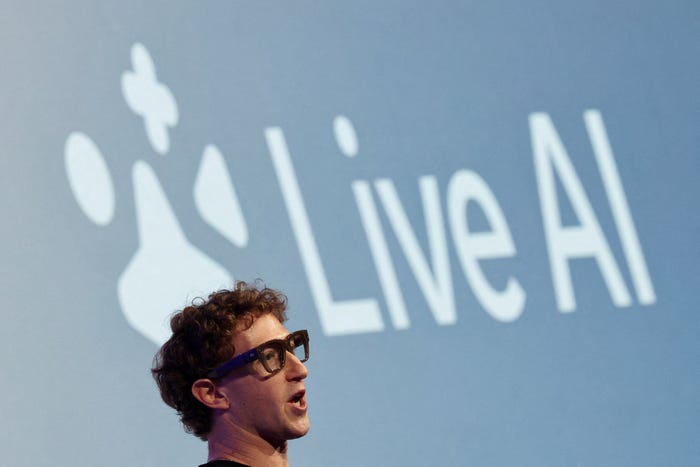Meta Rushes to Upgrade AI Tools Amid Intense Competition

URGENT UPDATE: Meta is rapidly pivoting its engineering strategies to enhance AI development, as executives push teams to abandon slow internal systems for faster, external tools. This decisive move comes in the wake of intense competition from rivals like OpenAI and Google.
According to internal memos obtained by Business Insider, Meta Superintelligence Labs (MSL) is now adopting platforms such as Vercel and GitHub to facilitate quicker product prototyping. The shift underscores the urgency with which CEO Mark Zuckerberg is tackling AI challenges, having committed hundreds of millions to attract top-tier talent with lucrative packages.
Internal documents indicate that the current Meta systems, designed for large-scale operations, are proving inadequate for the nimble, fast-paced demands of MSL’s teams. One memo from late September explicitly states that existing infrastructure takes “too long” for deploying changes, which is detrimental to the innovative process known as “vibe coding,” where AI assists in writing code.
Nat Friedman, former GitHub CEO and now leading MSL’s Product and Applied Research (PAR) group, is at the forefront of this transition. “Deploying changes takes too long (hours vs. minutes), and the overall tech stack is not conducive to vibe coding,” wrote Aparna Ramani, head of infrastructure for MSL, in her memo outlining the critical need for improvement.
The strategy involves a dual approach: leveraging Vercel for immediate needs while simultaneously developing an internal platform named “Nest.” This new system aims to host applications using TypeScript, a widely adopted programming language. Ramani notes that a working prototype of Nest is expected within just two weeks.
Meta already has ten ongoing projects utilizing Vercel and GitHub, enabling rapid updates that could now occur in mere minutes. This collaboration is a significant shift for the tech giant, which has often turned to external technologies when its own tools have fallen short. Earlier this year, Meta introduced an AI coding assistant called Devmate, which relies on models from competitors, reflecting the pressing need for effective solutions.
As Meta accelerates its focus on AI, the stakes continue to rise. The company is not only attempting to catch up but also to lead in a field that is rapidly evolving. Vercel recently secured $300 million in funding at a staggering valuation of $9.3 billion, underscoring its rising prominence in the tech sphere. Its clientele includes major industry players such as Netflix and Adobe.
Meta has not commented on these developments, and neither have Vercel and GitHub. As the landscape of AI technology shifts, Meta’s strategy highlights a broader trend within the tech industry towards agile engineering practices and external collaborations.
With this bold move, Meta aims to enhance its capabilities and remain competitive in a fiercely contested market. The tech world is watching closely as these changes unfold, with implications for the future of AI at stake.
Stay tuned for more updates on this developing story.






